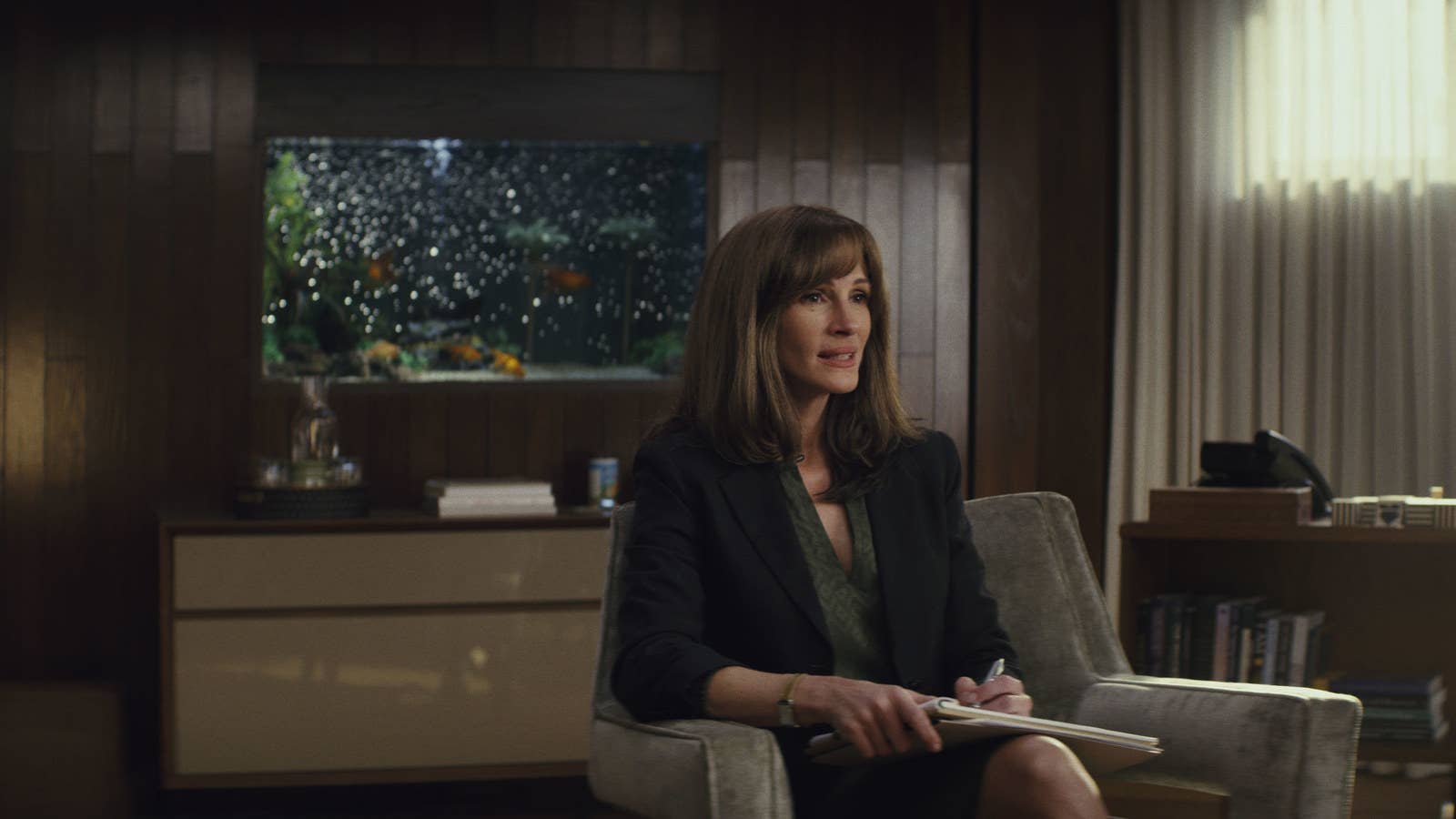
Amazon’s Homecoming — all 10 episodes of which dropped Friday — is a witty, paranoiac thriller adapted from the 2016 scripted podcast of the same name.
It also happens to be Julia Roberts’s debut as the star of a TV series. In an understated, nuanced performance, Roberts plays Heidi Bergman, the lead counselor at the Homecoming facility in Florida, a place designed to reintegrate soldiers returning from the war in the Middle East. Or so they say. It quickly becomes clear that Homecoming’s intention is much more sinister. (Spoilers begin here.)
Through a subcontract with the Geist Group — a megacorporation — the Department of Defense is testing whether drugs can erase soldiers’ traumatic memories in order to send them back to combat. Heidi is complicit in fooling the soldiers, who are unwittingly taking the drug during meals. But she doesn’t know everything Geist is doing. She’s mostly just acting on the orders of her boss, Colin Belfast (Bobby Cannavale), who regularly barks at her on the phone.
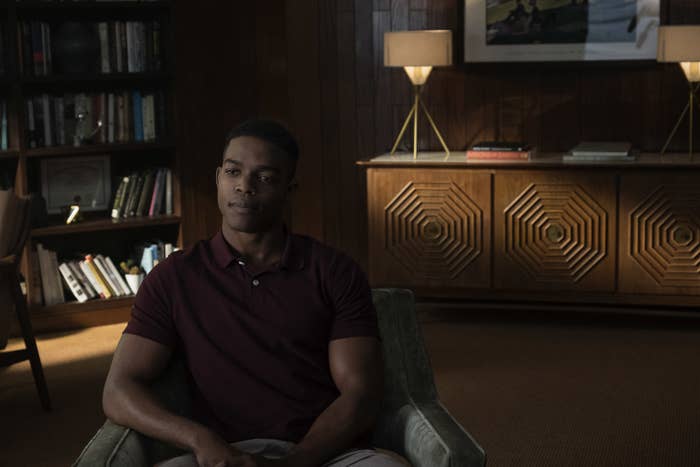
But when she forms a friendship with one soldier in particular, Walter Cruz (Stephan James), Heidi rebels against Homecoming’s mission: Over a meal with Walter in the show’s penultimate episode, she knowingly doses herself with the memory-erasing drug, and he gets a second helping. It’s an act that will incapacitate him, saving him from returning to active combat. And it explains why in the show’s future timeline four years later, Heidi remembers almost nothing about Walter, Colin, and even Homecoming. In 2022, Heidi lives with her mother (Sissy Spacek) and is a server at a seaside diner. She is prompted to look into her past by a tenacious Department of Defense investigator, Thomas Carrasco (Shea Whigham).
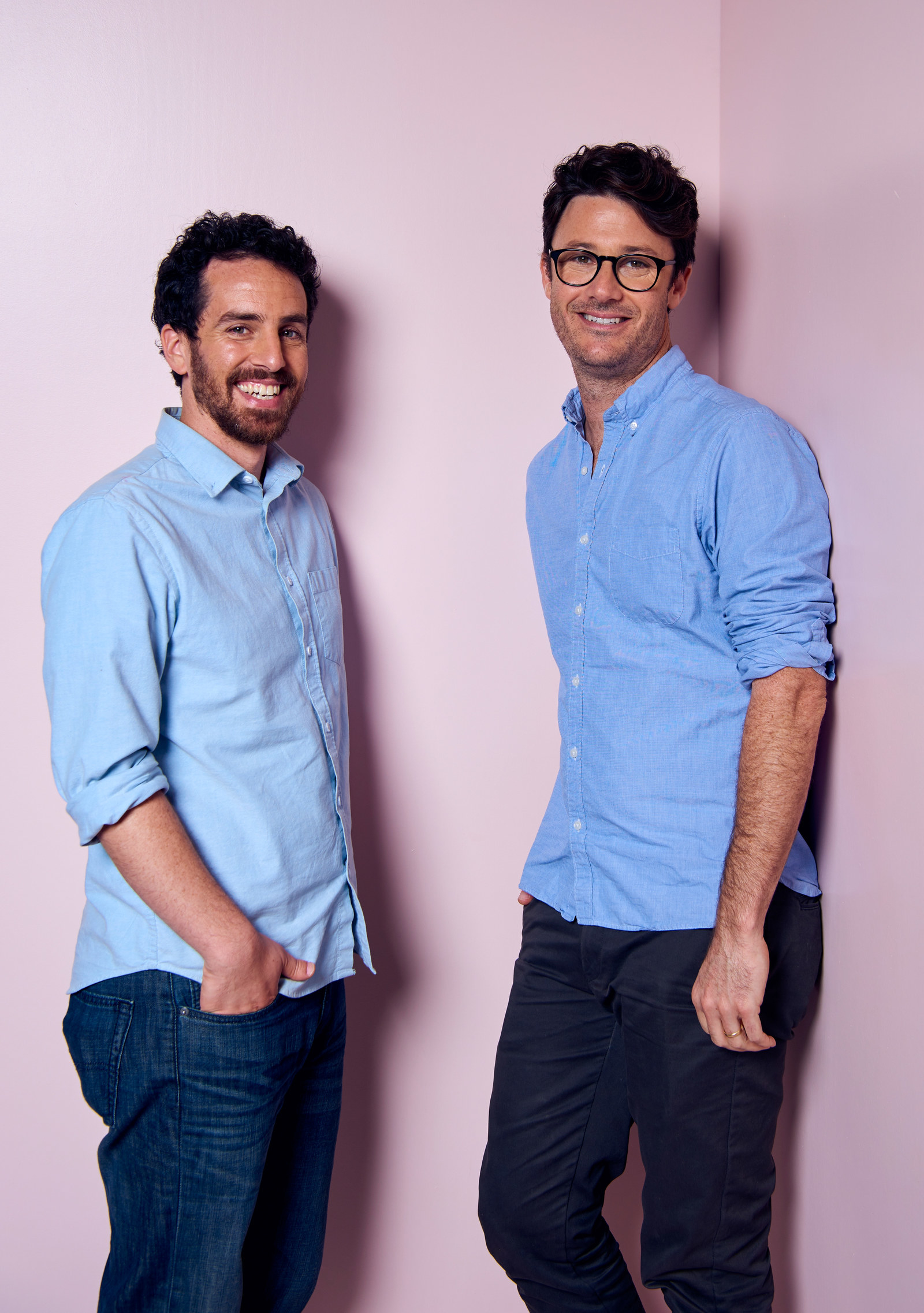
Homecoming — the podcast and the show — was created by Micah Bloomberg and Eli Horowitz. Bloomberg’s background was in sound mixing, and Horowitz was a McSweeney’s veteran and a novelist, who had been hired to run the narrative department of Gimlet Media. They wrote the podcast’s first season entirely over the phone — with Horowitz in San Francisco and Bloomberg in New York — which helped inspire Homecoming’s use of phone conversations to propel the narrative. “Neither of us had offices, really, so one or the other of us would be wandering in weird, hectic soundscapes while we talked,” Horowitz said in an interview (on, yes, the phone). They didn’t meet in person until Horowitz came to New York to record Homecoming, which in podcast form starred Catherine Keener as Heidi, Oscar Isaac as Walter, and David Schwimmer as Colin.
When Homecoming sold to Amazon, and Mr. Robot creator Sam Esmail signed on to direct and executive produce the show, they hired four other writers to help adapt it. Using the podcast, which ran for two seasons, “as a starting point, and as a really good foundation,” Horowitz said, they wanted to see “how else we could take advantage of this new medium” — that is, a visual one. Esmail’s filmic references are specific: Homecoming pays tribute to Alfred Hitchcock, Brian De Palma, and Alan J. Pakula.
It’s a taut drama, with each episode escalating the mystery of how Heidi ended up where she is — and wondering where Walter is.
By the show’s finale, Heidi has had enough of Homecoming’s bullshit in both timelines. In 2018, she’s walking out — literally — having eaten the drugged food to save Walter. And in 2022, her memory is finally back, and she is ready to seek out Walter’s stern mother, Gloria (Marianne Jean-Baptiste) in an effort to find him.
BuzzFeed News interviewed Bloomberg and Horowitz about “Stop,” Homecoming’s season finale. They talked about Heidi’s arc, Colin’s (perhaps temporary) downfall, the intricacies of the finale’s Heidi–Walter scene, and what the post-credits scene might mean for Season 2. (Just kidding: They refused to talk at all about Season 2, as you’ll see.)
Colin is down and out at Geist (for now).
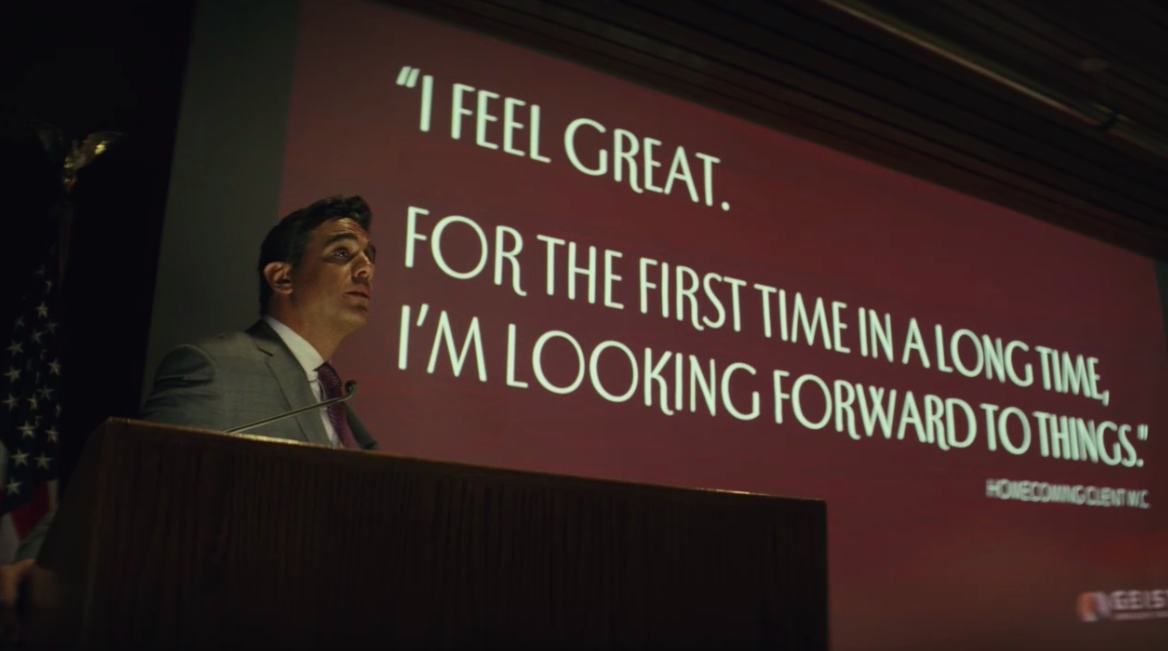
“Stop” begins in the 2018 timeline, with a triumphant Colin speaking to a military audience at the Defense Department, crowing about Geist’s successes with Walter’s treatment. He describes Walter as formerly paranoid and violent, but due to the care at Homecoming, he is “cured.” Colin wipes away a tear. “What does he want?” Colin says to the eager crowd. “More than anything, he wants to get back to work.”
While he’s accepting praise after the speech, he gets alarming texts from Craig (Alex Karpovsky), another Homecoming employee, who saw Heidi eating with Walter. Colin calls her in a panic: Heidi, who has packed up her things, speaks to him calmly, which only makes him more incensed. “Are you OK, Colin?” she asks. “You sound a little hysterical.”
“How can we deploy him like that?” Colin yells, realizing what state Walter will be in. Heidi replies flatly: “I guess we can’t.” He shrieks threats at her, and after Heidi hangs up on him, he screams, “Fuck!” — all in front of the now-shocked DOD crowd.
The writers, Bloomberg said, wanted Heidi to undermine Colin completely, and even toyed with the idea of him delivering a TED Talk before self-destructing. But they ultimately decided it should be a DOD audience. “His defeat then comes in front of all these military people, the people he’s been so desperate to please,” Bloomberg said.
Horowitz added: “It also just let us juxtapose his moment of triumph with his moment of defeat. As he’s proudly delivering Walter on a plate, he’s also having the rug snatched out from under him — to mix metaphors.”
The next scene in the show is in 2022, in which Colin — whom we know has somehow overcome his DOD setback to climb higher at Geist — has been summoned to a meeting. He thinks it’s to be with his supervisor, Ron (Fran Kranz), but instead walks into a nearly empty boardroom where Audrey Temple (Hong Chau), a former assistant he’s treated horribly in past episodes, sits at the head of the table. Colin is slow to understand what’s happened: Audrey — who is peppering him with questions about his recent fuckups — is the new Ron, and not only that, but she has direct access to the enigmatic Mr. Geist, whom we’ve never seen.
“It would mean a lot to Mr. Geist if you took responsibility,” Audrey tells Colin. “You talked to Geist?” he asks, nervously, but also impressed. “Yes, at his farm, have you been?” she answers. “No, I haven’t,” he admits. “It’s a beautiful property,” she says smugly.
So how did Colin recover from his humiliation at the Department of Defense? “Partly, it’s that Colin is a good scrambler. He’s used to getting knocked down and getting back up,” Horowitz said. “It’s also maybe indicative of how much anyone really cares about some of his crimes — our allegiance is to Walter, but maybe other people don’t have that same sympathy.”
In the podcast, Audrey was played by Amy Sedaris: She is introduced as Colin’s boss, and always thinks he is an idiot, if not insubordinate and a danger to Geist. They changed the character for the show, Bloomberg said, to make her someone you see in the background, but as an “underdog in the story, who at the end you’re surprised to see has been put into this position.”
In the boardroom scene, Colin realizes he’s in trouble and starts to suck up to her. “You were a problem solver. But now you are a problem,” Audrey says as she slides across the table a pre-written statement of responsibility for him to sign. “And this is the solution.”
“It’s also fitting that Colin is ultimately taken down by someone he trampled on along the way,” Horowitz said. “There’s something satisfying about that.”
The scene between Heidi and Gloria is a “reckoning” for Heidi.
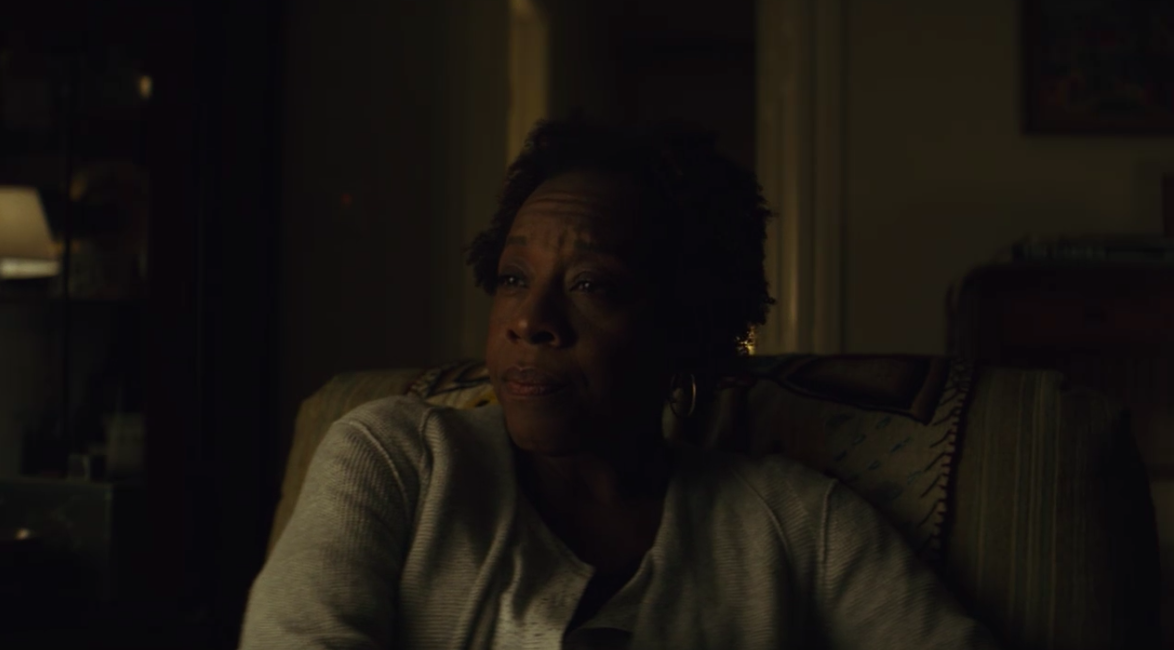
Now that Heidi has her memory back, she can’t just go back to the diner and her mother’s house — she needs to go on a quest. That quest begins at the home of Walter’s loving, skeptical mother, Gloria, whose suspicions about Homecoming were borne out when she had to pick up her catatonic son in a wheelchair after the double dose of medication.
Bloomberg and Horowitz wanted the finale scene between Heidi and Gloria to complement a scene from Episode 6. In that episode, Gloria realizes that Homecoming isn’t run by the Veterans Administration, but by Geist, a manufacturing company that makes products such as detergent and orange juice. Her doubts about Homecoming turn to fear, and she goes to get Walter. Heidi then manipulates him into staying, all while assuring Gloria that her son will be fine.
In the finale, Heidi tells Gloria exactly what Homecoming did to the soldiers — all to send them back to war.
“We wanted a scene when Heidi didn’t make any of those excuses, when Heidi didn’t dress it up, and did accept ultimate responsibility,” Horowitz said. “Even if there were things she didn’t know, even if her intentions were good. We didn’t want her to get off easy, because we see her being a legitimately conflicted and complicated character.”
The fall of Homecoming — a huge corporation drugging soldiers so they could return to war — would be a major scandal. But the writers knew, Bloomberg said, that for Season 1’s “reckoning scene,” they “didn’t want to have a trial, or the cover of the New York Times, and you see everyone going down,” he said. “We always wanted to think about Heidi’s journey in terms of her personal stake and her personal responsibility. This person came in Episode 6 and confronted her naivete, and the fact that Heidi thinks, ‘My good intentions will save the day. I want to do good here, and therefore good will be done.’” They needed Heidi to admit to Gloria that she was right about Homecoming’s nefarious aims.
Heidi also tells Gloria that Walter’s memories could be brought back, like hers have been, through “objects or cues from that time,” she says. It’s an idea Gloria thinks is ridiculous. “Why would we do that?” she says. “He’s finally back to who he was before this whole mess — the war, what you did to him, that place.”
The scene for Heidi, Bloomberg said, isn’t only about facing what she’s done, with Gloria as her judge. “It’s the beginning of her realization that she wants to see Walter again,” he said.
And it’s Gloria who accidentally points Heidi toward Walter, by telling her, “He's finally where he belongs.”
Heidi goes on that road trip that she and Walter talked about so much.
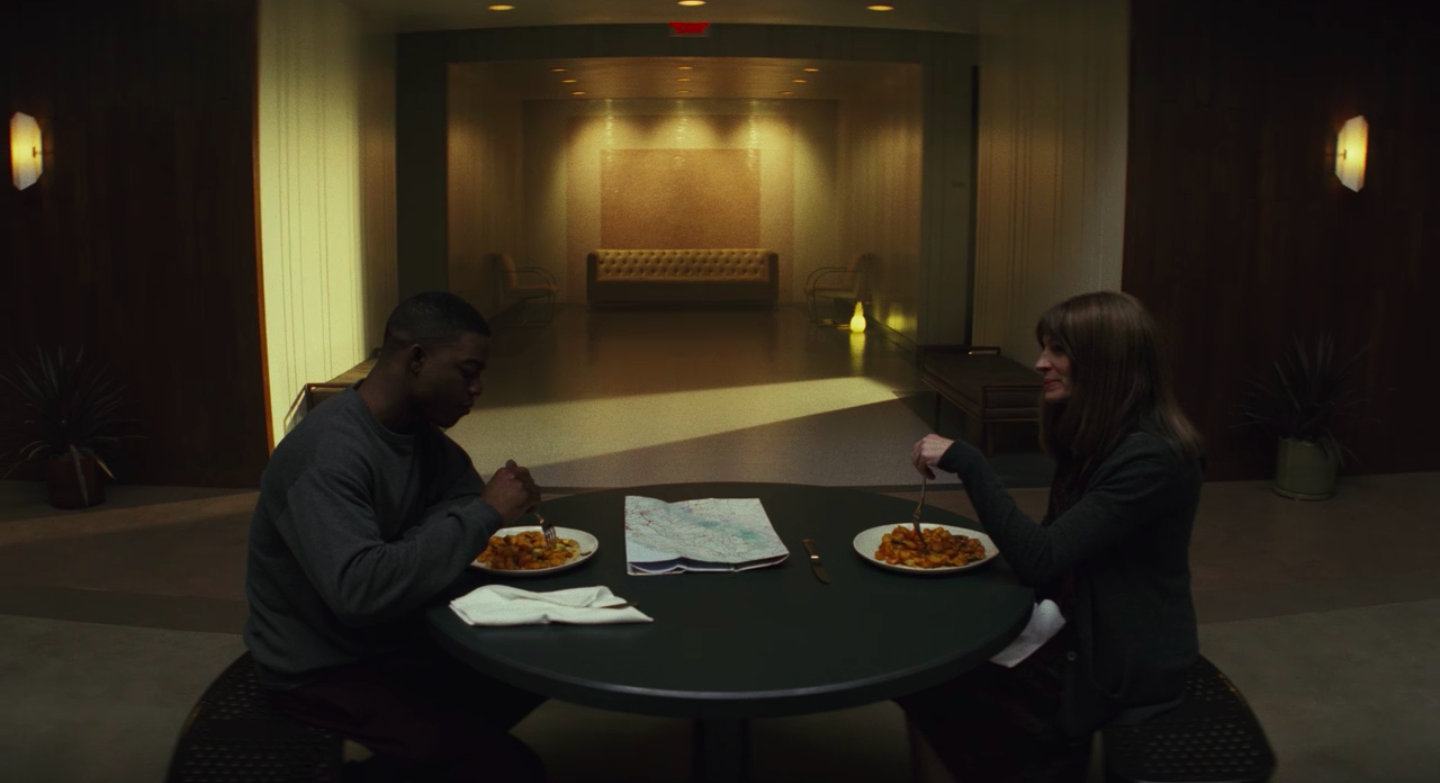
Heidi and Walter’s bond is deliberately not defined on the show. She is much older than he is: Her age is never stated, but Roberts is 51 (James is 24). She’s also his counselor in a therapeutic relationship. She knowingly helps drug him. It’s a dynamic with ethical pitfalls.
Roberts was attached to Homecoming before they started to write it, so they knew they needed a co-lead who could measure up to her. When James had a chemistry test with Roberts, they knew they had found their Walter. “He really matched Julia in a way that you felt like this was a meeting of equals. Because there’s a possibility for that relationship to be a little bit — not creepy, but inappropriate, let’s say,” Bloomberg said. “But with Stephan in the room, you really felt like this is a person who’s making a choice to understand what he’s about, needs this help — and then you can see how a relationship between them might develop.”
When Gloria says Walter is where he belongs, Heidi remembers Walter’s fantasy road trip to Yosemite National Park. They discussed it several times, but in their final conversation over their drugged meals, they talked about the small towns around Yosemite, and how they would pick where to live. “We’ll know it when we see it,” he says to her. “Gas station. Hardware store. Little café,” she says. It’s flirty as hell.
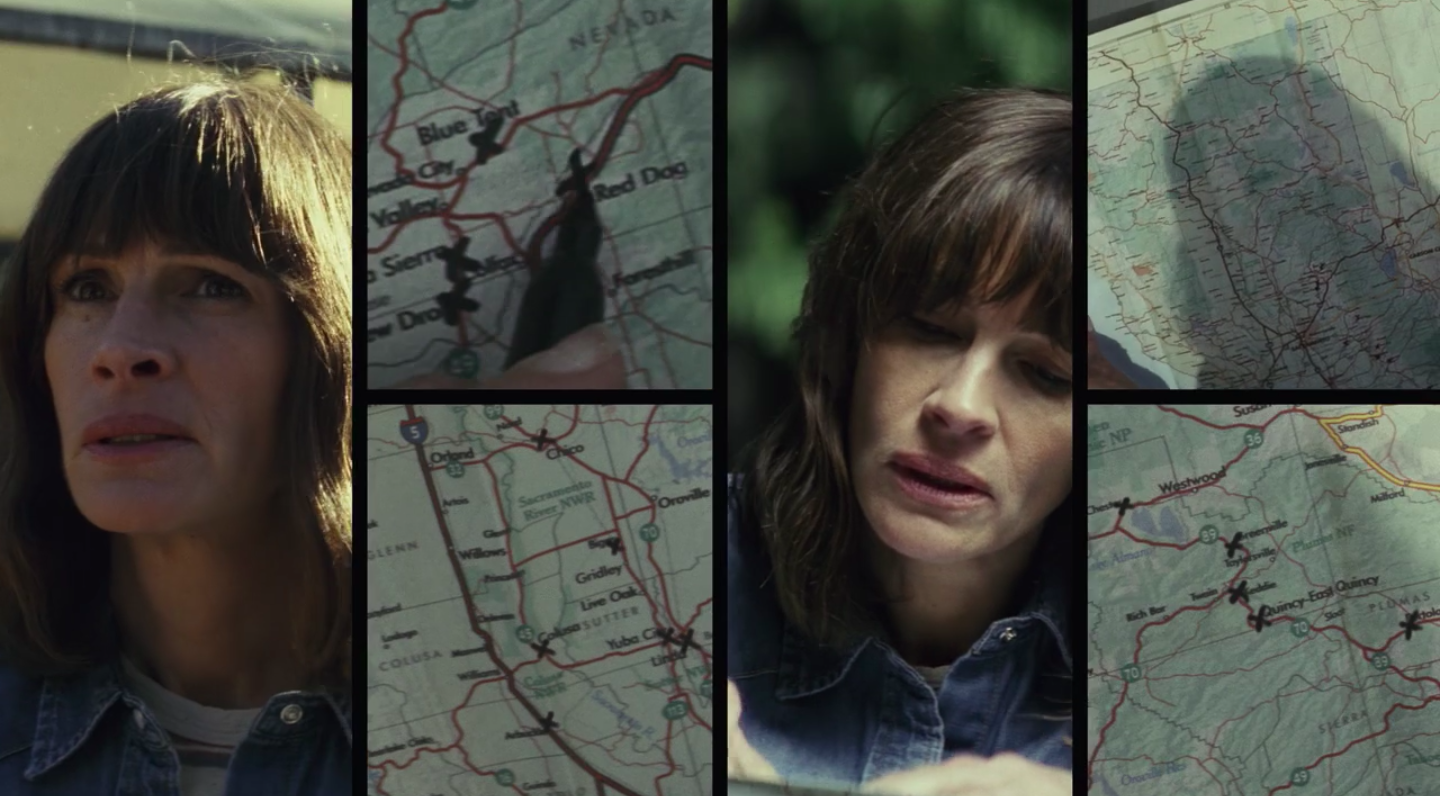
Heidi says goodbye to her mother, and to the sound of the Eels’ “Tremendous Dynamite,” she sets off on her drive from Florida to California. When Heidi couldn’t remember the past, Esmail shrunk the show’s widescreen to a 4:3 aspect ratio: a square box with black spaces signifying how constricted her point of view was. On the road, Heidi is free, and the screen shows her journey in wide view, and in multiples, as she makes her way — she hopes — to Walter.
“This is a show that’s been confined to rooms and hallways. It’s been very, very close quarters — two people talking,” Bloomberg said. “And we loved this idea as we came to this climactic 10th episode of going wide open, and just going across the country. Texturally and dynamically, it’s a great finale thing to leave all that behind. She’s out in the open. We’ve removed the bars in the aspect ratio, and now she’s completely free.”
Heidi crosses off towns on the road map Walter gave her as she goes through them. Then, as she sits at a stop sign, the point of view shifts, and we see a rustic cabin in the woods, with a truck parked out front and a half-built deck. Then we see Walter, who is unshaven, with his military buzz cut grown out. He needs an extension cord for his drill, and so he heads to town.
The final sequence — Heidi finding Walter, and their subsequent conversation — is less than 10 minutes of screentime. But the creative team — Bloomberg, Horowitz, and Esmail, too — agonized over it, having “endless discussions” about each moment, Bloomberg said. “When do we see Walter? When do the threads come together? How does the reveal work? And it ended up being one of those things where repetitions and drafts and going through and looking at every single option to find one that pleased everybody. And then doing that process again in editing. Because it’s so delicate.”
After he buys the extension cord (at the hardware store, one of their agreed upon prerequisites for where to settle), Walter goes to get a coffee (at a little café, another requirement). There, he sees Heidi, who is staring at him. It’s the moment of truth. He (seemingly) doesn’t recognize her, but based on how she’s looking at him, asks, “Is everything all right?” They fall into conversation, during which Heidi decides not to show Walter his map. As soon as he approaches her table, she puts it on the seat, thinking it would trigger his memory.
On the day they filmed the scene, Horowitz said, “That was a great day to watch on set because they were both so on it, so present.” The writers had put in, they said, some “exposition” and some “chitchat” to explain why these two people — purportedly strangers — would be talking. But according to Bloomberg, Roberts “felt like it wasn’t necessary,” he said. “She wanted to be left alone with their faces and their reactions and seeing each other. In the end, I think she was totally right. Less is more in that interaction, and it allowed you to zero in on the emotions.” Their connection is obvious.
That scene ends on a cliffhanger, though (one of two in the finale).
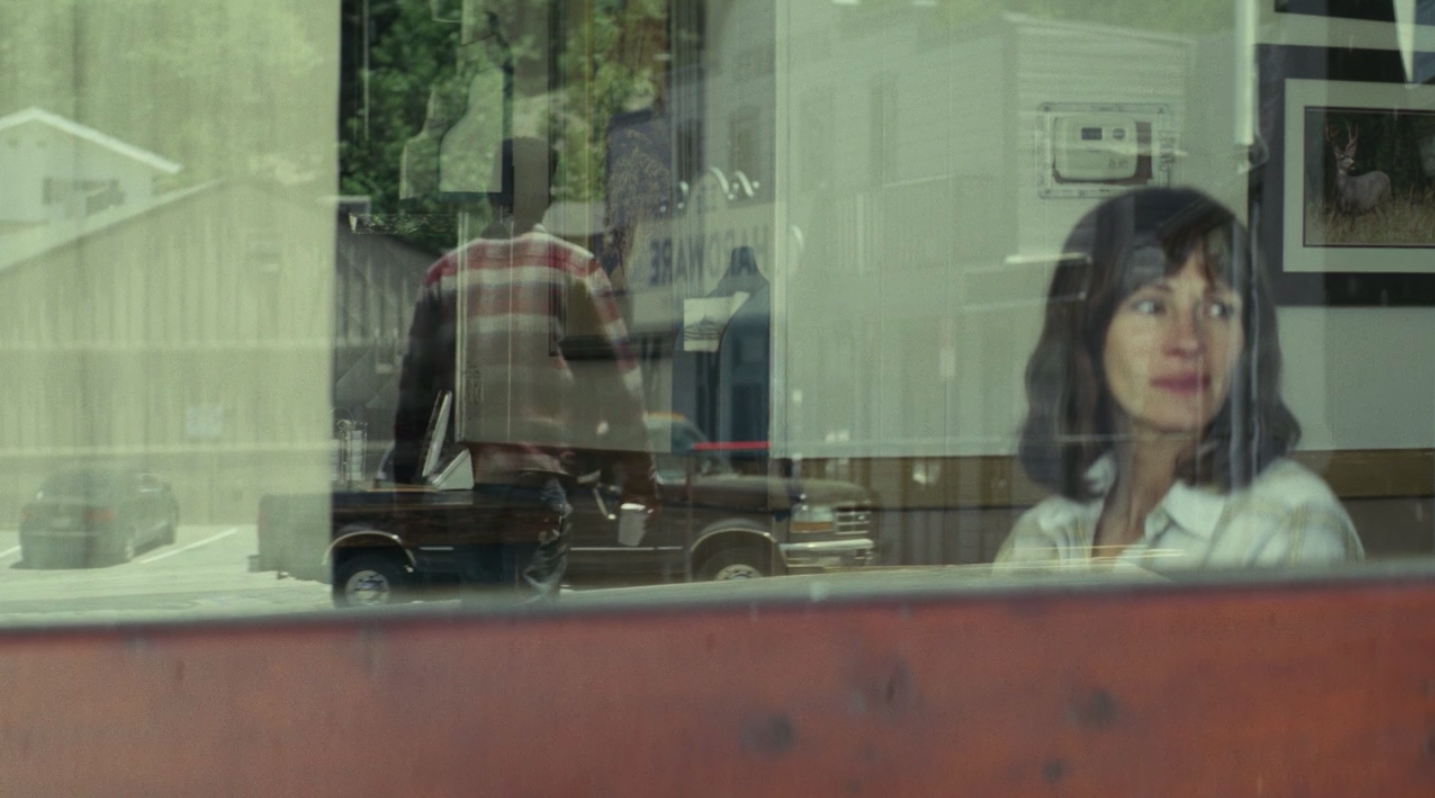
Throughout the season, the precise Heidi always has her pen in a horizontal line on her desk. And Walter tilts it at an angle — it’s one of their flirty things. That recurring joke was already written into scripts before they decided it would provide the twist that would cause Heidi to question everything in her final moment of the season.
During their conversation, Walter appears not to have a care in the world; Heidi is choked up, and seemingly moved. He eventually tells her he should get back to the deck, and they shake hands. “Good luck,” she says in a whisper. “With the deck.” He says: “Just half a day left. Maybe a day.” He walks out in full swagger.
As she watches him leave, Heidi’s eyes fill with tears, and she heaves a sigh of relief — and perhaps of regret. But when she looks down at the cutlery on her table that had been neatly, horizontally arranged on her napkin — spoon, knife, fork — before Walter sat down, she sees that the fork is now at an angle. Heidi’s jaw drops.
That idea had been thrown out in the writers room, “almost as a joke, like — and then she looks down, and her fork’s askew,” Bloomberg said. After they decided to do it, they still weren’t positive it would work. “Is it going to be corny, or weird, or confusing?” Bloomberg wondered. “But then when I saw the cut, I was, like, ‘Oh, that works great.’”
As for its meaning — whether Walter actually does remember Heidi, but pretends not to, or whether he just has an ingrained tendency to mess with people — well, we’ll have to wait for Season 2 to find out.
Horowitz said the cliffhanger is meant to put Homecoming’s larger themes in sharp relief. “How do we know who we are? Is our identity determined by our memories or something in our bones?” he said. “Depending on how you interpret the ending, it maybe says something about how you interpret the season in general.”
Bloomberg and Horowitz were tight-lipped about discussing the second season, which they are writing now — they wouldn’t even talk about who will be on the show, beyond the three leads. “We’ve been viciously cautioned about Season 2, that’s why we’re being cagey,” Bloomberg said.
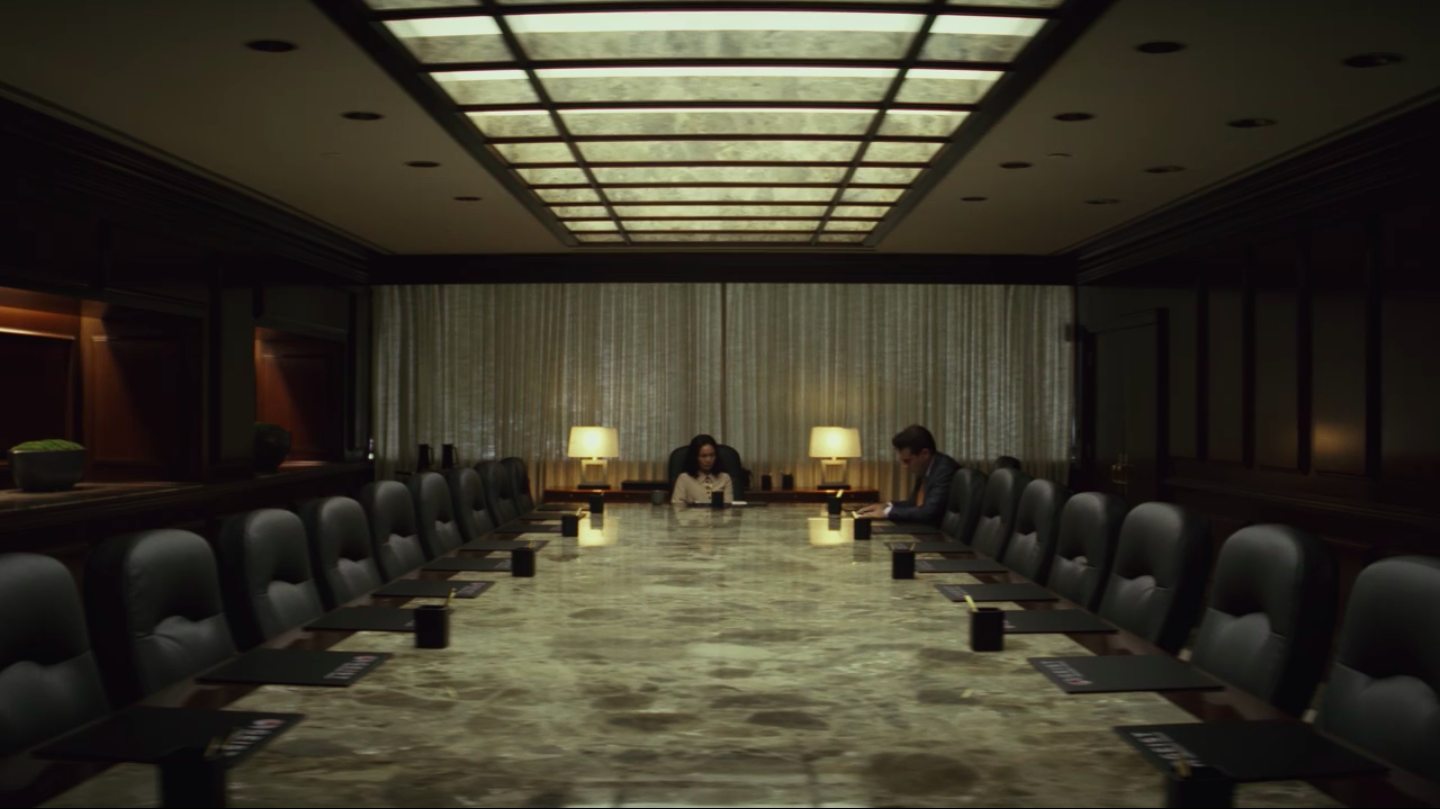
All they would offer was that the post-credits scene with Colin and Audrey — a continuation of the boardroom scene — is significant.
Colin defeatedly signs the confession, and we see that Audrey is suddenly enervated and shaky, after being prosecutorial and decisive moments before. After he leaves, she rubs red liquid from a test-tube into her wrists. It seems to revive her. When pressed about big questions going forward, Bloomberg asked, “Did you watch through the credits of Episode 10?”
Yes.
“There you go!” he answered.
